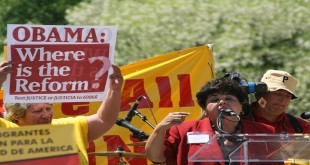Political pundits (including professors!) sometimes assert that national election outcomes turn on which political party or candidate espouses the most attractive policies on issues such as taxation, immigration, health care, and (in Europe) the role of the European Union, that preoccupy the mass public. However, political parties do not stake out widely popular positions on every issue they confront, in part because party elites are sometime pressured by party activists and special interest groups to stake out positions that do not resonate with the wider public, in part because party elites at times “follow their conscience” by advocating the policies they sincerely support, even in the face of public disapproval. Hence most parties offer the public a mixture of more and less popular issue positions, and parties compete with each other not just by presenting alternative policy visions but by struggling to shape the “terms of the debate,” i.e., what the election is about. In American politics, for instance, the Democratic presidential candidate Michael Dukakis famously asserted during his 1988 national party convention speech that “this election is not about ideology, it’s about competence,” a claim likely motivated by Dukakis’s projection that his (liberal) ideology was a losing position with the American public. (In the event, Dukakis’s strategy failed as his Republican opponent, George Herbert Walker Bush, strongly emphasized ideological debates during the election campaign, and won the election.) And in the 2002 German Bustestag election, the incumbent Chancellor Gerhardt Schroeder successfully focused the public’s attention on the foreign policy debate about his government’s stance vis-à-vs the Iraqi leader Saddam Hussein – a stance that was less confrontational than that of his party’s main rival, the Christian Democratic Union Party, and one that was widely popular with the German public – and away from domestic policy issues where the public largely disapproved of his government’s policy record. Schroeder’s issue emphasis strategy helped turn the tide in his government’s upset re-election victory.
In research to be presented at the 2015 annual meeting of the American Political Science Association in San Francisco, my co-authors Samuel Merrill, III, Roi Zur and I will present research that addresses two questions pertaining to parties’ issue emphasis strategies: 1) When political parties strive to shape the “terms of the debate” to their electoral advantage, how should they decide which policy debates to emphasize (and which to ignore)?; 2) In real world elections, how many extra votes can political parties actually win by shaping the terms of the debate to their advantage?
In response to the first question we posit two simple rules for political parties’ issue emphasis strategies:
- First, for large, mainstream political parties, we advance the simple popular frontrunner strategy, that these parties should emphasize their most popular policy positions.
- Second, for smaller political parties (such as green parties, communist parties, and the radical right) we advance a distinct yet reasonable underdog strategy, that these parties emphasize issues on which their positions are clearly distinct from those of the larger, mainstream rivals, and also reasonable in that these positions are not completely out of the mainstream of public opinion.
The popular front-runner strategy is self-explanatory. The distinct yet reasonable underdog strategy captures the logic that smaller niche parties usually face a resource disadvantage compared to their larger, mainstream rivals, and underdog parties often have no long-term history of governing accomplishments to burnish their public image. Hence if underdog parties emphasize the issues where their positions converge with those of their resource-rich, front-running rivals, then even if these positions prove popular the underdog parties that advocate them will be nobody’s first choice. Instead, underdog parties should emphasize issues where their positons are distinct, so as to exert a positive appeal towards some niche of the electorate; and if such distinct positions are also reasonable, i.e., not too far out of the mainstream of public opinion, so much the better for the underdog party.
In our research we illustrate our arguments by analyzing data on German public opinion and parties’ policy positions at the time of the 2013 national election to the Bundestag. Our study suggests that the issue emphasis strategies we advocate would have worked well for the parties contesting the election, in particular that the underdog party Die Linke was wise to emphasize Left-Right policy debates that highlighted its distinctive left-wing positions, and that the underdog Greens correctly emphasized their distinctive environmental positions; in particular, we can conclude that both parties notably enhanced their support by emphasizing these dimensions, i.e., that these parties’ issue emphasis strategies mattered. However, we also conclude that the underdog Free Democratic Party (FDP) had no viable issue emphasis strategy, since the public viewed is policies as being nearly indistinguishable from those of the front-running Christian Democratic Union Party.
Our research thereby suggests that elections turn not only on what parties say; they also turn on how much parties emphasize the different policy positions they espouse!
 The Plot Politics Decoded
The Plot Politics Decoded



